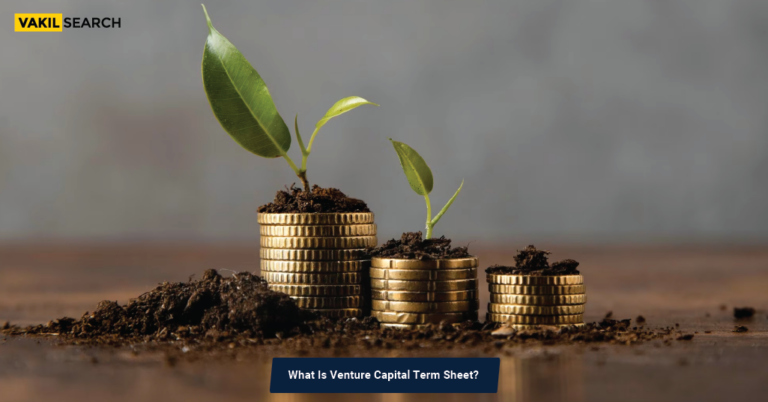Have you ever considered how unfair it can be for startups to have exploding term sheets? The disadvantages quickly offset the benefit of saving time for both parties to startups discussed here in this article.
Term Sheet Meaning
Exploding Term Sheet: A term sheet is a non-binding document that outlines the key terms and conditions of a proposed business agreement or investment. It serves as a preliminary agreement that sets the framework for negotiations and helps to ensure that all parties are on the same page before moving forward with a more formal agreement.
What Is A Term Sheet?
A term sheet is a document that outlines the key terms and conditions of a proposed business agreement or investment. It typically includes information such as the parties involved, the type of transaction, the purchase price or investment amount, and any conditions or contingencies that must be met before the deal can be completed. In the case of startup funding, it can contain information like:
- Valuations
- Shareholding patterns
- Voting rights
- Investment amounts
- Vesting period of the Investor
- Modes of payment to receive funding
- the percentage of companies offered
- and other details depending upon the interests of the parties involved.
The primary reason for term sheets is because not every time will the conditions presented in the terms sheets be acceptable to both parties. Even term sheets are negotiated and amended, saving many legal fees if the deal is not signed. On the negative, the nonbinding nature of the term sheet implies any party can nullify their contract at any time.
What Is An Exploding Term Sheet?
Exploding term sheet is a term sheet but with an expiration date. Yes, you read that right. The investing firms set a time limit for the startup owners to sign and agree to the terms defined in the term sheet. Generally, the industry standard is about 7 to 10 days. Any delay after the set limit makes the offer from the firms null and void. So, the owners must decide as fast as possible for startups to have exploding term sheets.
Investor’s Perspective
We can all remember buying something solely because it was on a limited-time deal, right? The exploding term sheets cause a similar effect for startup owners but on a grander scale. The timer involved checks that the startup owners do not keep sitting pondering whether the offer is good or not and might get involved in an impulsive decision.
When a lot of time is involved before signing up for the offer, the external conditions (such as increase or decrease in sales of the startup, patent approvals, change in consumer demand, and economy) may also change under which the terms of the deal were set up initially, which may not be favourable for the investor anymore. The exploding term sheets protect investors from getting into such conditions.
Another reason why exploding term sheets are famous among VCs is that it helps them secure the best deal for themselves. One must recognise that VCs are for-profit organisations. They have to put the best offer for themselves above the startup’s best interest. Thus they aim to capture as much equity as possible in a limited amount of funding. There might be someone who could offer a better deal to the owners. When owners have an agreement in their hands, they are less desperate for funding and can go on looking out for this ‘someone’. VCs cannot let this happen, so a limited-time deal is a good solution for them but maybe not so good for startups. Let’s discuss how.
Effect Of Time Limit On Startups in Exploding term sheets
As we discussed the benefits of exploding term sheets for investors, it becomes evident that the same benefits are the constraints for startups. After getting an offer, a startup needs to review itd by its lawyers. The owners must discuss it with other parties, such as prior investors, if the request is in their best interests. Too aggressive time limits might make it challenging for startups to go through the legalities of the term sheet, let alone assess whether the offer is good for them or not. It is advised that entrepreneurs must avoid VCs with overly tightly timed exploding term sheets. It’s a major red flag, according to experts. If an investor has to put such an aggressive time constraint to get you to accept the offer, you are more likely to get a better offer.
Often, startups are observed forsaking ongoing thoroughly through the legal aspects of the contract owing to lack of time. This is where it can get clumsy in future. Missing reading a single line on your contract can cost a ton. So, do your due diligence in going through every essential step and if it feels like the time is not adequate, explain the situation to willing investors. You will most likely get the required time, but if you don’t, do not compromise on fully understanding the contract. Understand that the collaboration is only going to get more troublesome ahead.
Exploding term sheets is particularly unfair for startups, but the practice will not stop any sooner. The VCs possess the money which can help startups reach new heights. Thus, with VCs having the upper hand, it can be challenging for entrepreneurs to secure the best deal. The best contract is the one that benefits both parties without any manipulation, but the power dynamic of exploding terms sheets does not get the startups an equal share. Time restrictions can lead to very unwise business judgments. Preferring an investor who knows your business requirements is better than someone who merely puts money for you on the table and, in no time, exploding term sheets would be a thing of the past.
Breaking Down Term Sheet
A term sheet typically includes the following sections:
- Introduction: This section outlines the purpose of the term sheet and provides an overview of the proposed transaction.
- Parties: This section identifies the parties involved in the transaction, including the buyer, seller, and any other relevant parties.
- Transaction Details: This section provides details about the type of transaction, such as an asset purchase, stock purchase, or investment.
- Purchase Price or Investment Amount: This section outlines the amount of money that will be paid or invested in the transaction.
- Conditions and Contingencies: This section outlines any conditions or contingencies that must be met before the transaction can be completed.
- Representations and Warranties: This section outlines the representations and warranties that each party is making about the transaction.
- Closing: This section outlines the process for closing the transaction, including any required approvals or documentation.
Format of Term Sheet
The format of a term sheet can vary depending on the type of transaction and the preferences of the parties involved. However, most term sheets are structured in a similar way, with sections that outline the key terms and conditions of the proposed transaction.
What are the Key Features of a Exploding Term Sheet?
The key features of a term sheet include:
- Non-binding: A term sheet is typically non-binding, meaning that it does not create a legally enforceable agreement.
- Outline of key terms: A term sheet outlines the key terms and conditions of a proposed transaction, including the purchase price or investment amount, any conditions or contingencies, and the process for closing the transaction.
- Framework for negotiations: A term sheet serves as a framework for negotiations and helps to ensure that all parties are on the same page before moving forward with a more formal agreement.
What is the Purpose of a Term Sheet?
The purpose of a term sheet is to outline the key terms and conditions of a proposed business agreement or investment. It serves as a preliminary agreement that sets the framework for negotiations and helps to ensure that all parties are on the same page before moving forward with a more formal agreement.
What is the procedure to be followed from the term sheet to the signed deal?
After a term sheet has been agreed upon, the parties involved will typically move forward with due diligence and negotiate a more formal agreement. Once the formal agreement has been drafted and agreed upon, it will be signed by all parties and become legally binding.
Advantages of Exploding Term Sheet
The advantages of an exploding Term Sheet include:
- It helps ensure that all parties have a clear understanding of the key terms and conditions of the proposed transaction.
- It serves as a starting point for negotiations, allowing parties to discuss and refine the terms before committing to a binding agreement.
- It streamlines the negotiation process, enabling parties to identify and resolve major issues early on, reducing the time and resources required for drafting a detailed agreement.
- It allows parties to assess the viability of the deal and alignment of interests, helping them make informed decisions on whether to proceed with the transaction.
- As a non-binding document, it provides flexibility and allows parties to explore options without the immediate legal obligations associated with a formal agreement.
Example of Exploding Term Sheet
An example of a term sheet might include the following information:
- Introduction: This term sheet outlines the key terms and conditions of a proposed stock purchase agreement between ABC Company and XYZ Company.
- Parties: ABC Company will purchase 80% of the outstanding shares of XYZ Company.
- Transaction Details: This is a stock purchase agreement.
- Purchase Price: The purchase price for the shares will be $70 million.
- Conditions and Contingencies: The transaction is subject to due diligence and the approval of both companies’ boards of directors.
- Representations and Warranties: Both parties represent and warrant that they have the authority to enter into the transaction and that all information provided is accurate and complete.
- Closing: The closing of the transaction will take place within 90 days of the execution of the formal agreement.
Exploding Term Sheet FAQs
What is a term sheet?
A term sheet is a non-binding document that outlines the main terms and conditions of a proposed business transaction or investment. It is often used as a starting point for negotiations before formalizing a binding agreement.
What is the term sheet process?
The term sheet process involves the creation, negotiation, and finalization of a term sheet between parties involved in a business transaction or investment. The process typically includes the following steps:
1. Initial discussions and negotiations to identify key terms and conditions.
2. Drafting the term sheet document outlining the agreed-upon terms.
3. Sharing the term sheet with the other party/parties involved.
4. Negotiating and revising the term sheet based on feedback and discussions.
5. Finalizing the term sheet with mutual agreement.
6. Using the term sheet as a basis for preparing the formal binding agreement.
What is another name for a term sheet?
Another name for a term sheet is a letter of intent (LOI), memorandum of understanding (MOU), or heads of agreement (HOA). These terms are often used interchangeably to refer to a preliminary document that outlines the key terms and conditions of a proposed agreement.
What is term sheet in trading?
In trading, a term sheet refers to a document that outlines the terms and conditions of a specific financial transaction, such as a bond or derivative trade. It includes details like the type of instrument, quantity, price, settlement dates, payment terms, and other relevant terms related to the trade.
What does term sheet mean in contract?
In contract law, a term sheet refers to a document that outlines the key terms and conditions of a proposed contract. It highlights the fundamental elements of the agreement, such as the parties involved, scope of work, payment terms, delivery dates, warranties, termination clauses, and any other critical provisions that will form the basis of the formal contract.
Who prepares a term sheet?
A term sheet is a brief document created by the investor for presentation to the company in which the investor expresses his willingness to invest in the company.
What are 5 key points of a term sheet?
The key points of a term sheet can vary depending on the specific transaction, but generally, it includes the following elements:
1. Parties involved: Identifies the parties and their roles in the transaction.
2. Transaction overview: Describes the nature of the transaction and its purpose.
3. Financial terms: Outlines the financial aspects, such as price, valuation, payment terms, and any relevant financial obligations.
4. Rights and obligations: Specifies the rights, responsibilities, and obligations of each party.
5. Conditions and contingencies: Highlights any conditions or contingencies that need to be met for the transaction to proceed, such as due diligence, regulatory approvals, or financing arrangements.
What is the purpose of a term sheet?
A term sheet helps streamline the negotiation process, minimize misunderstandings, and save time and resources by allowing parties to assess to identify any major issues early on.
What is term sheet in project?
In the context of a project, a term sheet outlines the key terms and conditions of the project agreement. It serves as a preliminary document that sets the foundation for the formal project agreement.
What is term sheet in India?
The purpose and use of a term sheet in India are generally the same as in other jurisdictions. It is a non-binding document that outlines the main terms and conditions of a proposed business transaction or investment.
What happens after term sheet is signed?
After a term sheet is signed, the parties typically move forward with drafting and negotiating a more detailed and binding agreement.
Is term sheet legally binding in India?
Generally, a term sheet is not legally binding in India or in many other jurisdictions.
What is a final term sheet?
A final term sheet is a revised version of the initial term sheet that incorporates all the agreed-upon terms and conditions between the parties.
What to do after term sheet?
After a term sheet is agreed upon, the next steps typically involve:
1. Drafting a detailed agreement
2. Negotiating the final agreement
3. Conducting due diligence
4. Finalizing and executing the agreement
What is the difference between term sheet and agreement?
A term sheet is a non-binding document that outlines the key terms and conditions of a proposed transaction or agreement. On the other hand, an agreement is a more comprehensive and specific document that governs the legal relationship between the parties and is enforceable in a court of law.
Conclusion
Excessive time constraints may make it difficult for startups to go over the legalities of the term sheet. After receiving an offer, a startup must have it assessed by its legal team to avoid any future problems. If the request is in the owners’ best interests, they should discuss it with other parties. The usage of exploding term sheets is incredibly unfair to startups.
Follow Vakilsearch to clarify legal confusion or problems and discover a solution for more such issues.










